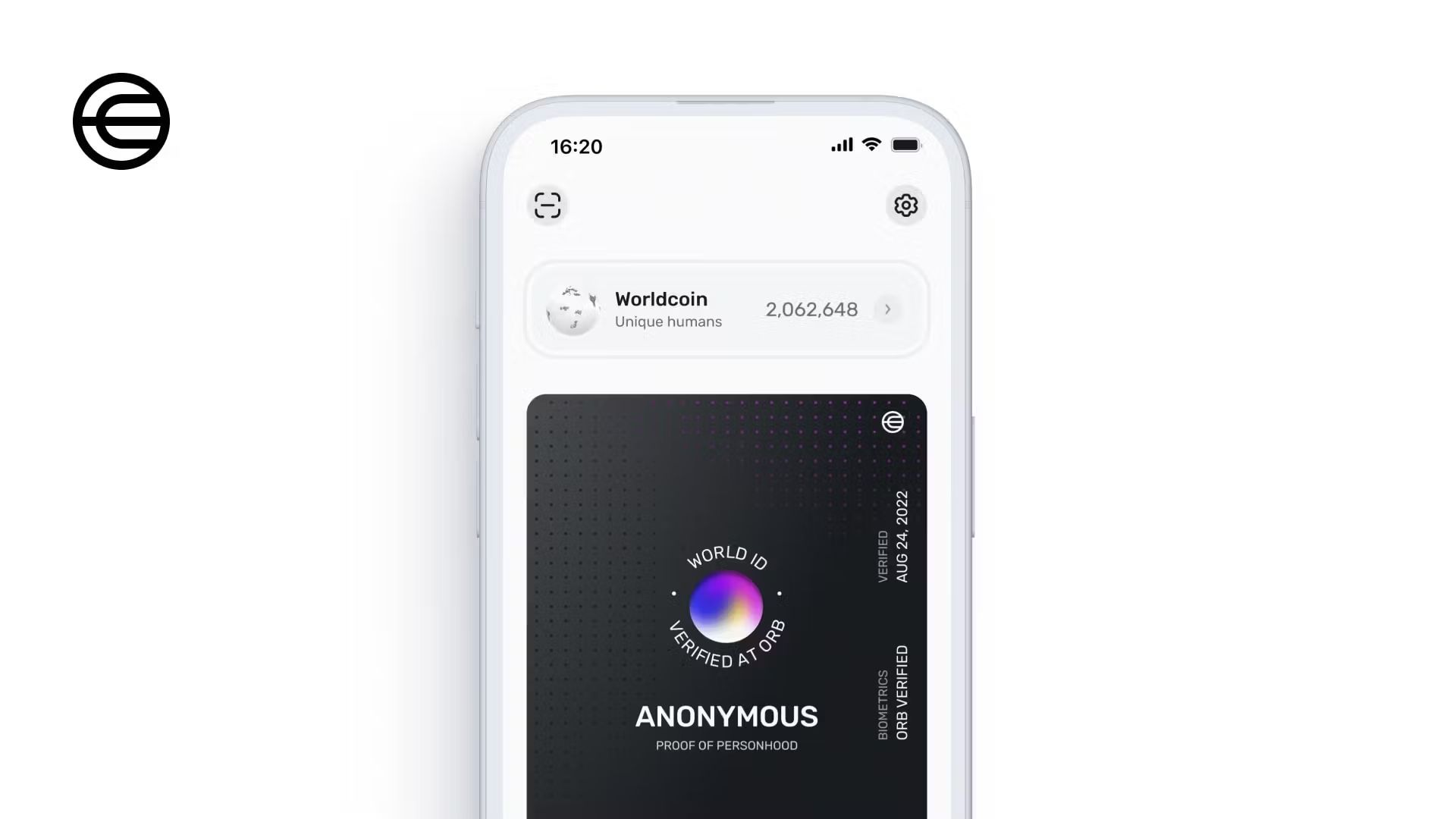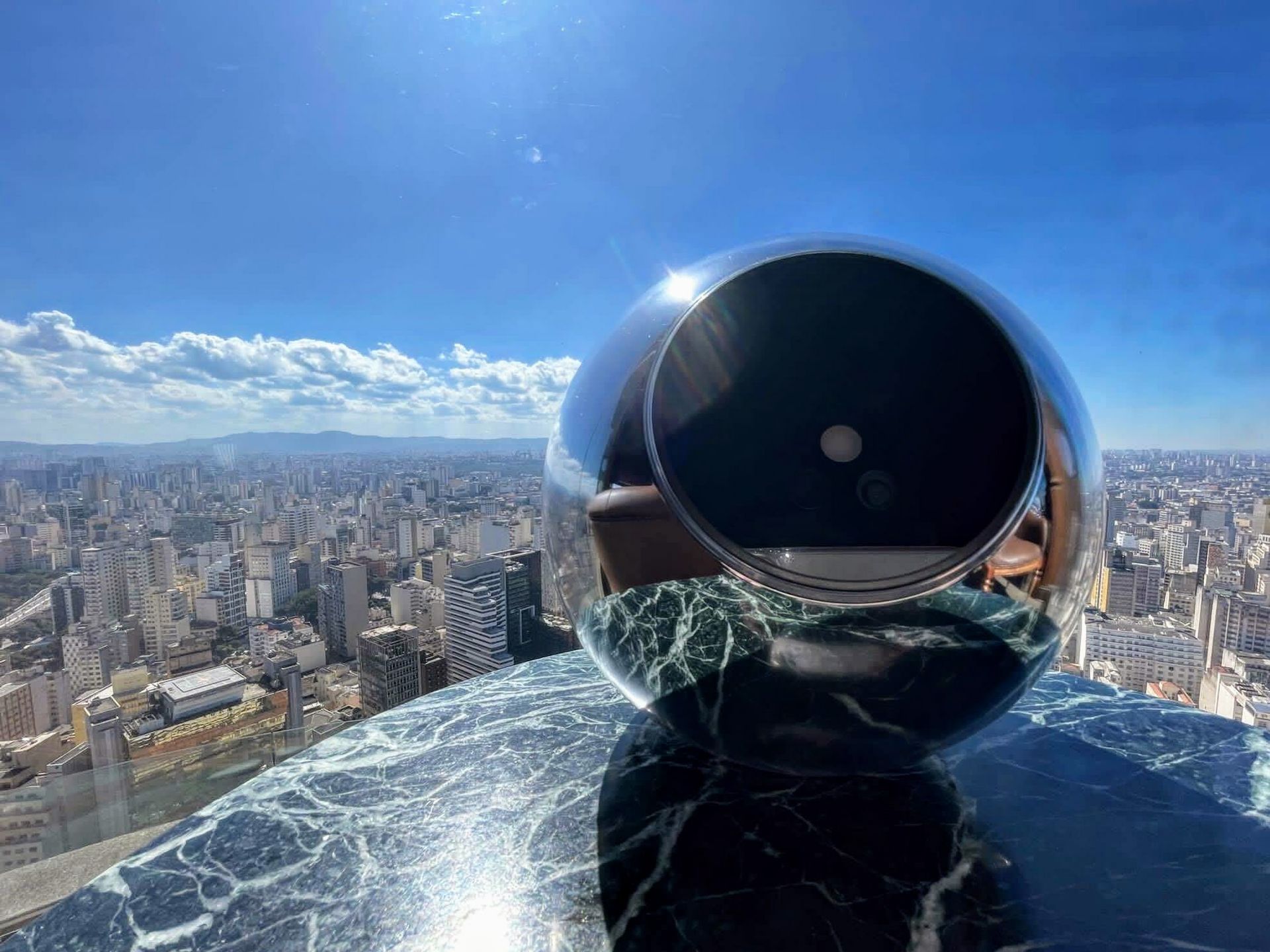Is Worldcoin legit? This is the burning question many are asking after the recent global launch of Worldcoin, a venture led by OpenAI CEO Sam Altman. This audacious project aims to corner the market in verifying human authenticity, offering crypto tokens in exchange for an eyeball scan – an idea as bold as it sounds. The concept has already caught the attention of European data protection authorities, raising eyebrows and concerns.
Why the sudden emphasis on proving our humanness online? It appears to stem from companies like Altman’s OpenAI and their developments in AI-powered tools such as ChatGPT. These advancements blur the lines between bot-generated content and human digital activity, making it increasingly challenging to distinguish the two. But fear not, as Altman proposes an intriguing solution – an eyeball-scanning device coupled with a crypto token, promising to re-establish our unique human identity in the digital world.
Is Worldcoin legit?
As it stands, Worldcoin is indeed a real project, backed by credible entities such as Sam Altman, former president of Y Combinator and current CEO of OpenAI, and it does have a substantial technological foundation.
Central to the crypto project Worldcoin is a unique concept that authenticates your human identity, effectively a digital declaration that you are indeed a genuine person, not a bot or AI. This key element is called your ‘World ID’, acting as your ‘Proof of Personhood’. According to Worldcoin, this proof of being human is an imperative requirement in the digital era we are traversing.
Creating your World ID doesn’t just grant you a virtual passport to humanity. In return for this authentication, you are awarded a certain amount of Worldcoin tokens. These tokens, known as the native cryptocurrency of the Worldcoin ecosystem, become your tool for exchanging value within the blockchain economy. As one would anticipate, these Worldcoin tokens, or WLDs, can be swiftly traded for other renowned crypto assets, including Bitcoin (BTC). So, “Is Worldcoin legit?” It appears the answer lies in how the digital world responds to this innovative approach.
How does Worldcoin work?
Europe has already witnessed the rise of pop-up locations in the UK, France, Germany, and Spain, where individuals can acquire Worldcoin “digital tokens” by providing their biometric data to Worldcoin’s distinct, somewhat futuristic orbs. Unsurprisingly, privacy regulators in at least three of these regions are raising eyebrows and in some cases, initiating investigations into how Worldcoin handles the sensitive personal data of Europeans. This leads us back to the pivotal question: “Is Worldcoin legit?”

In defense, OpenAI and Worldcoin assert that all images are swiftly deleted on-device to preserve privacy. They leverage a technology known as zk-proof, which allows your proof-of-personhood and unique humanness to be shared without exposing the sensitive personal data linked to your World ID. Despite these claims, it’s evident that Worldcoin still has to navigate the challenges of privacy concerns and regulatory scrutiny in its quest to authenticate humanity in the digital realm.
Are there any legal barriers?
Earlier in the week, the UK’s Information Commission Office (ICO) was questioned about Worldcoin’s launch in the UK. The ICO publicly stated that it would be “making enquiries”, reminding organizations that they must conduct a Data Protection Impact Assessment (DPIA) before starting any processing that might lead to high risk, such as processing special category biometric data. Where organizations identify high risks that they cannot mitigate, they must consult the ICO. The ICO’s statement also emphasized the necessity for “a clear lawful basis to process personal data,” adding: “Where they are relying on consent, this needs to be freely given and capable of being withdrawn without detriment.”
A critical question arises here: Is it possible to freely give consent when individuals are encouraged to offer their biometrics in exchange for a token that’s presented as a form of virtual currency? Can this arrangement satisfy the question, “Is Worldcoin legit?”
Fast forward a few days, and the CNIL, France’s data protection authority, echoed the ICO’s concerns and expressed even more specific doubts about the legality of Worldcoin’s actions. As Reuters first reported, the CNIL is not only questioning Worldcoin’s legality but has also revealed it’s already conducting an active investigation into the company.
“The legality of [Worldcoin’s data] collection seems questionable, as do the conditions for storing biometric data,” confirmed a CNIL spokesperson via email. The spokesperson also revealed, “Worldcoin collected data in France, and the CNIL initiated investigations.”
According to the CNIL, the investigation they initiated has been transferred to the Data Protection Authority (DPA) in Bavaria, as they identified this German state authority as Worldcoin’s lead data supervisor within the EU. This is presumably due to Worldcoin having a subsidiary located in that German state. The CNIL has stated that it is supporting Bavaria’s investigation “under the mutual assistance procedure” established in EU law.
This raises the question, “Is Worldcoin legit?” especially when considering the regulations under the EU’s General Data Protection Regulation (GDPR). The GDPR, which remains incorporated into the UK’s data protection rules, has a mechanism known as the One-Stop-Shop. This mechanism is designed to streamline regulatory oversight when concerns cross Member State borders, as in this case with Worldcoin.
In these situations, the data controller needs to liaise only with a single lead DPA. For Worldcoin, this turns out to be the DPA in Bavaria.

TechCrunch approached the Bavarian authority regarding the ongoing investigation but received limited information due to the active status of the procedure. The authority confirmed that the obligation to conduct a data protection impact assessment is among the first aspects they’ll inspect. This assessment should offer a comprehensive analysis of the impact of the envisaged processing operations on personal data protection and the safeguards to address potential risks.
According to the GDPR, biometric data used for identification, which aligns with Worldcoin’s intent, is classified as “special category data”. This type of data, deemed highly sensitive, is governed by the strictest rules for lawful processing.
A representative for Tools For Humanity, the profit-oriented tech company that spearheaded the development of Worldcoin and operates the World App, clarified to TechCrunch that consent is the legal basis they’re using for processing European biometrics data. She noted that, in accordance with GDPR, the project depends on user consent for creating the proof of personhood and for opting into data custody.
She further directed TechCrunch to Worldcoin’s biometric data consent form and privacy notice, documents collectively spanning almost 7,200 words.
Worldcoin, relying on people’s explicit consent to process their special category data under EU law, needs to provide a crystal clear explanation about what the processing is for. With around 7,000 words of legal jargon presented to individuals alongside promises of crypto rewards for their scans, meeting this high standard of clarity seems quite challenging. Here, the question “Is Worldcoin legit?” particularly in terms of data consent becomes even more critical.
The governance structure of Worldcoin, a decentralized cryptocurrency project, also appears complex, making it difficult for people to identify who is actually receiving their data. When TechCrunch asked whether Worldcoin operates as a for-profit or not-for-profit entity, a representative for Tools For Humanity, the entity answering queries sent to Worldcoin’s press email, didn’t provide a definitive answer due to Worldcoin’s complex organizational structure and decentralized governance.

However, she confirmed that Tools for Humanity and its German subsidiary (essentially, the Worldcoin developer) is a profit-oriented tech company. Meanwhile, the main entities involved, the Worldcoin Foundation and the Worldcoin Protocol, are presumably not-for-profit. A statement on Worldcoin’s website reveals that the Worldcoin Foundation is a sort of non-profit, incorporated in the Cayman Islands, with profit-making subsidiaries.
Questions have arisen concerning who is processing the data and hence who is legally accountable for compliance with EU data protection laws. The Worldcoin biometric consent form indicates that the Worldcoin Foundation, based in the Cayman Islands, is the data controller of the images and biometric data gathered via their Orb. While the Worldcoin Foundation is now said to be the data controller, Tools For Humanity is recognized as a data processor for Worldcoin.
Worldcoin’s biometric data consent form implies that once users ‘sign up with an Orb’ and have their biometric data gathered, they won’t be able to have their personal data deleted afterwards. Worldcoin asserts that the unique Iris Code created in this process cannot be deleted, as doing so would compromise the proof of uniqueness. This approach seems at odds with GDPR, which grants Europeans extensive data access rights, including the right to request data deletion.
While it is not yet clear how swiftly regulators might proceed towards enforcement if concerns are validated, Tools For Humanity asserts that the Worldcoin project complies with all relevant laws. This claim comes with certain exceptions, like certain US states where residents are outright forbidden from being scanned due to local laws limiting biometric data processing.
Worldcoin also asserts that they have conducted a “rigorous” data protection impact assessment and are dedicated to working with partners across Europe to ensure that Worldcoin satisfies regulatory requirements and provides a safe, transparent service for verified humans.
Is Worldcoin demonic?
Worldcoin is a technological and financial project aimed at creating a unique digital identity for each human being through biometric data, specifically iris scans. It’s associated with the development and use of advanced technology and digital currencies, which some may find controversial, but describing it as “demonic” would likely be a matter of personal belief and interpretation.
How does the future of WLD coin look? Check out our price prediction here!
Featured image credit: Worldcoin





